- Home
- slideshows
- miscellaneous
- 11 shocking things about being a teacher that you'd never thought to ask
11 shocking things about being a teacher that you'd never thought to ask
Teachers can't openly criticize the school or their roles.

Teachers work a lot more than just during school hours.
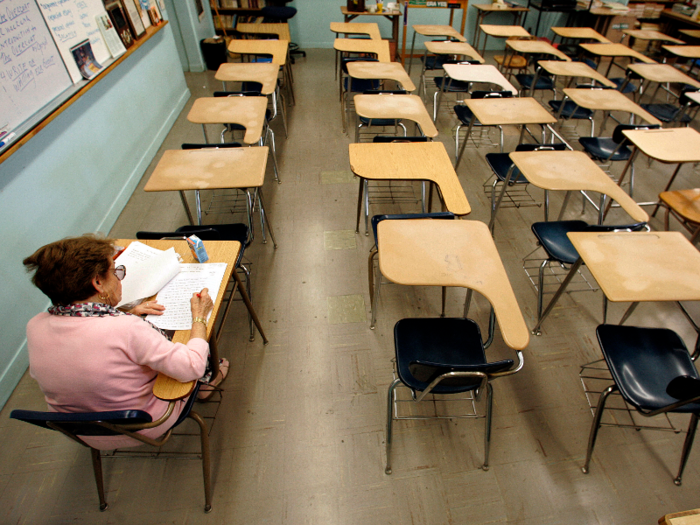
Many teachers say they work outside of school hours to finish grading papers and catching up with other work.
"Something like a research paper that I might spend five minutes on each student, that is 10 hours of grading," said John, a middle and high school teacher from Pennsylvania. "That isn't happening during the school day. Every now and then one gets lucky and can correct while the students are working but that is very unlikely. During the day I am working with students."
"I arrive an hour before school starts, leave an hour after school starts, work on class materials at my kids' practice and work the weekends," said Andrea, a middle school teacher from New Jersey.
"There's a lot of outside preparation involved in order to even have a chance at a successful lesson," said Brett, a high school teacher from California.
There's a lot of paperwork to do aside from just grading tests.
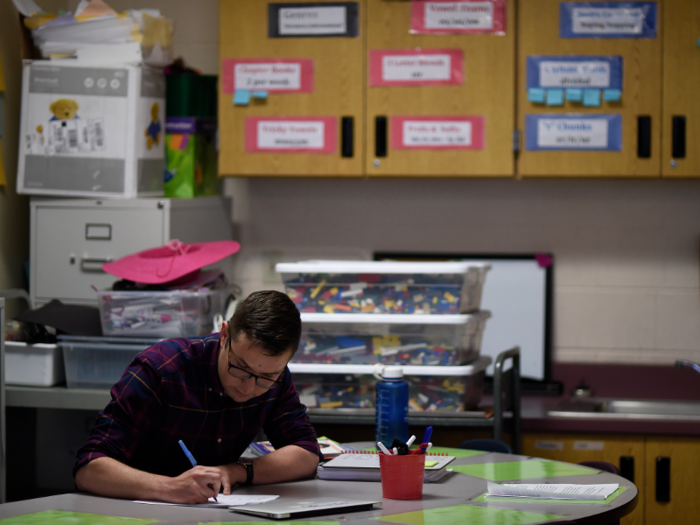
Kimberly, a high school teacher from Florida, said teachers spend time in meetings with administrators and filing paperwork related to the administration. She specifically pointed to two time-consuming programs: individualized education programs (also called IEPs) and 504 plans. Both of these federal programs are designed to help students with disabilities and special needs stay competitive with their peers with more personalized curricula.
"There's so much paperwork," Kimberly said. "Every IEP and 504 plan requires teacher input and meetings. We never get to actually plan lessons during our planning period."
Teachers feel overworked and pressured to stay in their roles.

Some teachers feel overworked, yet feel like they can't leave due to an ongoing teacher shortage.
Teacher vacancies have exceeded 100,000 jobs in the past four years, The New York Times reports. The shortage is expected to hit high-poverty schools the hardest, according to the Economic Policy Institute. Some of the shortage is driven by low pay. Teachers earn almost 19% less than other professions which require a bachelor's degree, and the soaring cost of college has burdened many post-graduates with student loan debt.
"This [job] really takes a major toll on my physical and mental health; I'm exhausted, I feel like I am losing myself," a middle school teacher from Maryland who wished to remain anonymous said. "But I also feel this tremendous pressure to keep going, because if I leave there is literally no replacement. Sometimes I find myself thinking [it's] better to be a stressed out teacher and present than no teacher at all."
Many teachers sometimes get negative comments about their chosen profession.
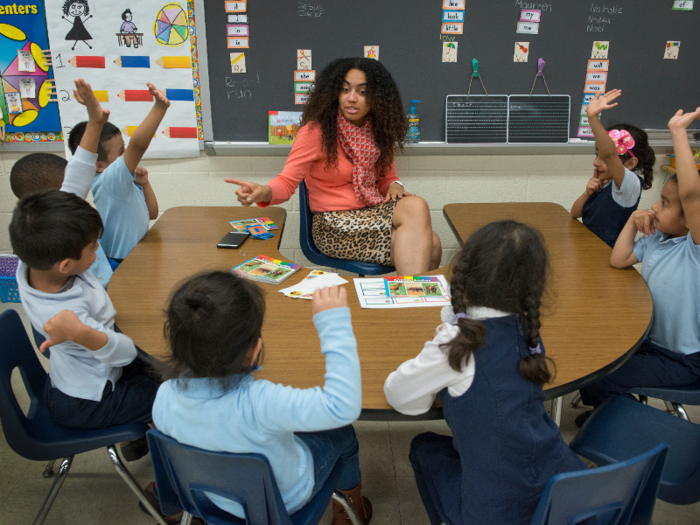
Much like how nurses say they receive judgmental comments about their career path, teachers say they feel people disrespect their jobs.
"Telling someone that you are sorry or feel bad that they are a teacher is an insult," said Jennifer, an elementary school teacher from New Mexico. "Please don't feel sorry for us, just do a better job at parenting and educating individuals out of the classroom."
"When I mention that I'm a middle school librarian, people either feel pity for me or look at me like I'm certifiably nuts," said Andrea, a middle school teacher from Illinois. Andrea finds working with kids in the 6th, 7th, and 8th grades rewarding. She said she enjoys providing support and empathy as they go through a "critical formative period in their lives."
"I feel honored to be there to help them through these three years," Andrea added.
Summer 'vacation' for teachers is anything but.
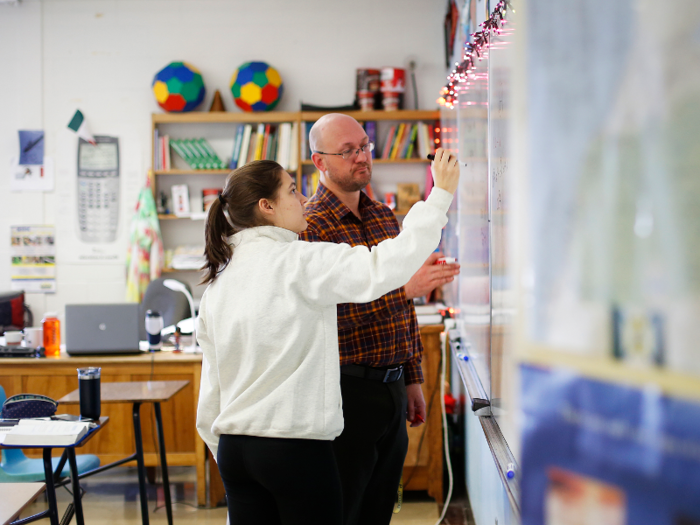
While some people assume teachers get three months to rest during the summer, many educators still work over the summer to make ends meet. In fact, 1 in 4 teachers under 30 have reported working a second job, even in the school year, according to Quartz.
"No matter how many times I explain that I am only paid for 10 months, people say 'but you still get twelve paychecks,'" an anonymous high school teacher from Pennsylvania told Business Insider. "Yes. Ten months of salary is spread out over twelve months. I am effectively unemployed over the summer. 'Well, it must be nice to have three months—' No. It isn't. I'd rather be working."
The classroom sometimes get dangerous for teachers.
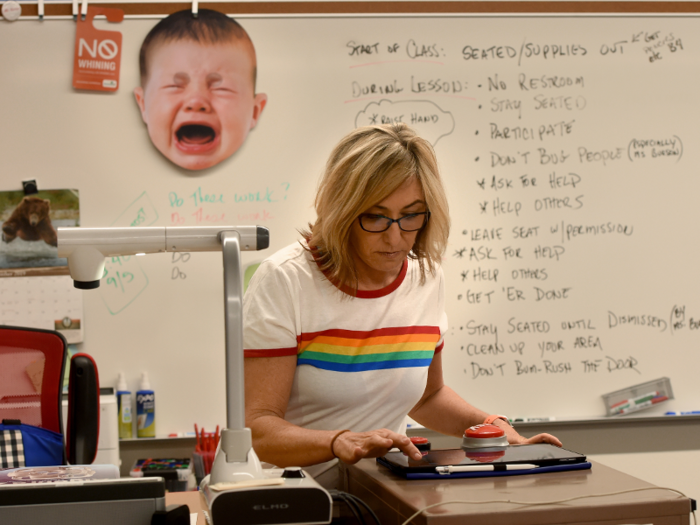
"I end up being the first line of defense for my students when another student's behavior becomes a danger to them," said an elementary school teacher from Virginia who wished to remain anonymous. "My body is put on the line to make sure my other students are not hit with flying chairs or flipping tables."
Between 2015 and 2016, 11% of elementary school teachers reported being threatened with injury and 9% were physically attacked, according to a 2018 report by the National Center for Education Statistics.
Crafting an individualized teaching plan for each student gets exhausting.
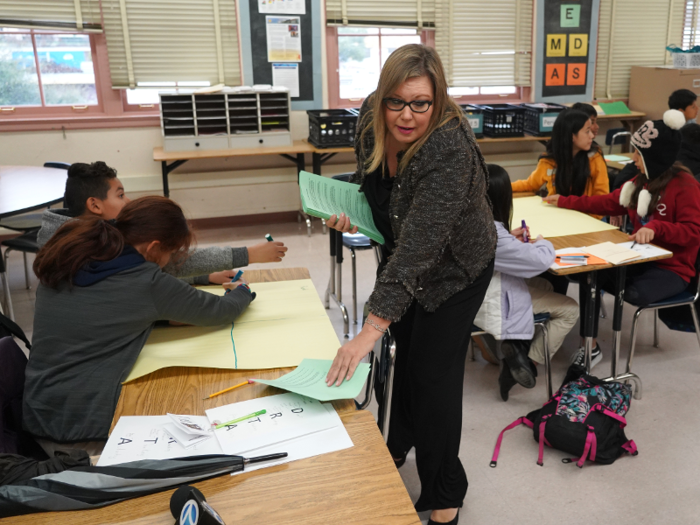
Many teachers strive to understand the way each of their students learn best, and help them in the best way possible. Yet crafting such specialized lesson plans requires time .
An anonymous high school teacher from California said she teaches more than 200 students each year and "to know them as learners and individuals and to each of them at their level and pace is taxing and exhausting."
Lisa, an elementary school teacher from Massachusetts, said she sometimes gets assigned more than 250 students a school year, and many people don't know how much time it takes to prepare lessons for each one. "[People] don't understand how we have to differentiate our teaching for different learners," Lisa said.
Uriah, a middle school teacher from New Jersey, said many people don't understand how often educators modify their curriculum based on the needs of their students. "Modifying a curriculum during the school year takes a tremendous amount of time and is often done well after the school day is over," Uriah said. "Add in grading, progress reports, phone calls, emails home, and lesson plans, and one can quickly see that a teacher's job is never-ending. There are always things that teachers need to do to be the best resources for their students."
Parents can make their lives miserable.
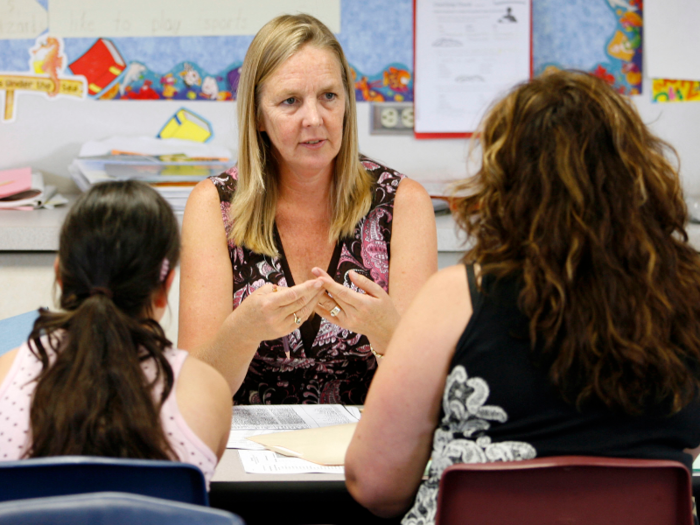
A middle school teacher from Pennsylvania who wished to remain anonymous said parents can make their lives more stressful, either by not paying enough attention to their kids or micromanaging the educators.
"[Parents] don't hold kids accountable at home or teach them how to be good citizens, so when they come to school the kids can be real jerks and they know their parents won't care if they get in trouble," the teacher said.
They sometimes don't get to use the bathroom whenever they'd like.
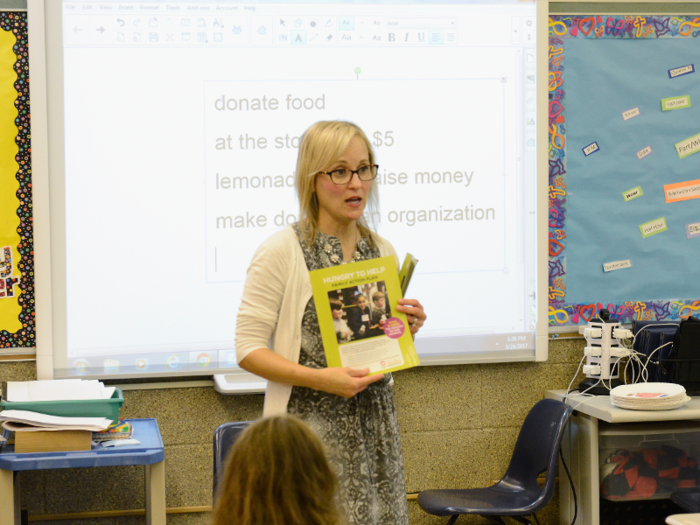
Some teachers said they cannot leave their classroom if they need to use the bathroom.
"I can't just go to the bathroom whenever I would like," said John, a middle and high school teacher from Pennsylvania.
"You don't even get to use the restroom when you need to," said a high school teacher from Indiana who wished to remain anonymous.
Teachers (and the school) are liable for students when they're in the classroom; if a student gets hurt while the teacher is away, the teacher gets blamed. Attorney's at the National Education Association even said leaving students unattended is one of the "seven sins" of school employees:
I understand the "need to use the bathroom" defense. Sadly, that won't help. Someone must be supervising students during even a quick bathroom break (secretary, paraprofessional, even a custodian). Having someone "watch" from the next room isn't enough. The number one job of a teacher is to supervise students, no exceptions.Teachers use their own money to pay for classroom supplies.
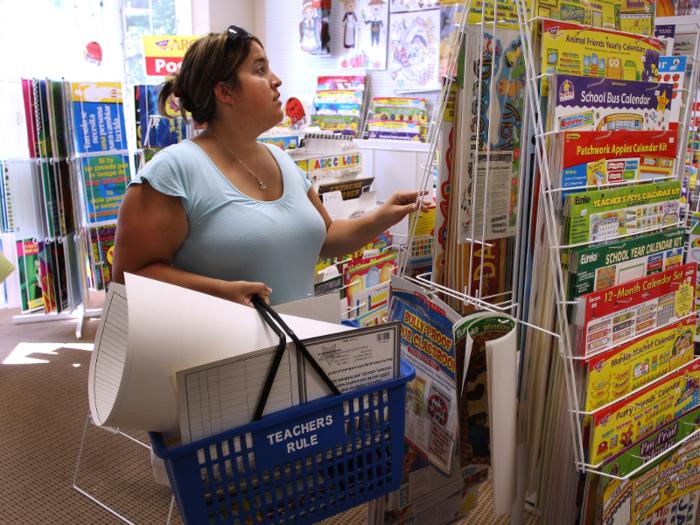
"You spend a lot of your own money to finance your classroom," Morgan, a middle school teacher from South Carolina, said.
In fact, nearly every teacher Business Insider heard from said they spend their own money on school supplies. Sometimes teachers spend upwards of $1,000 a year of their own money on basics like chalk and pencils.
Read here to learn what 31 teachers earn and how much of it goes towards school supplies.
Popular Right Now
Popular Keywords
Advertisement